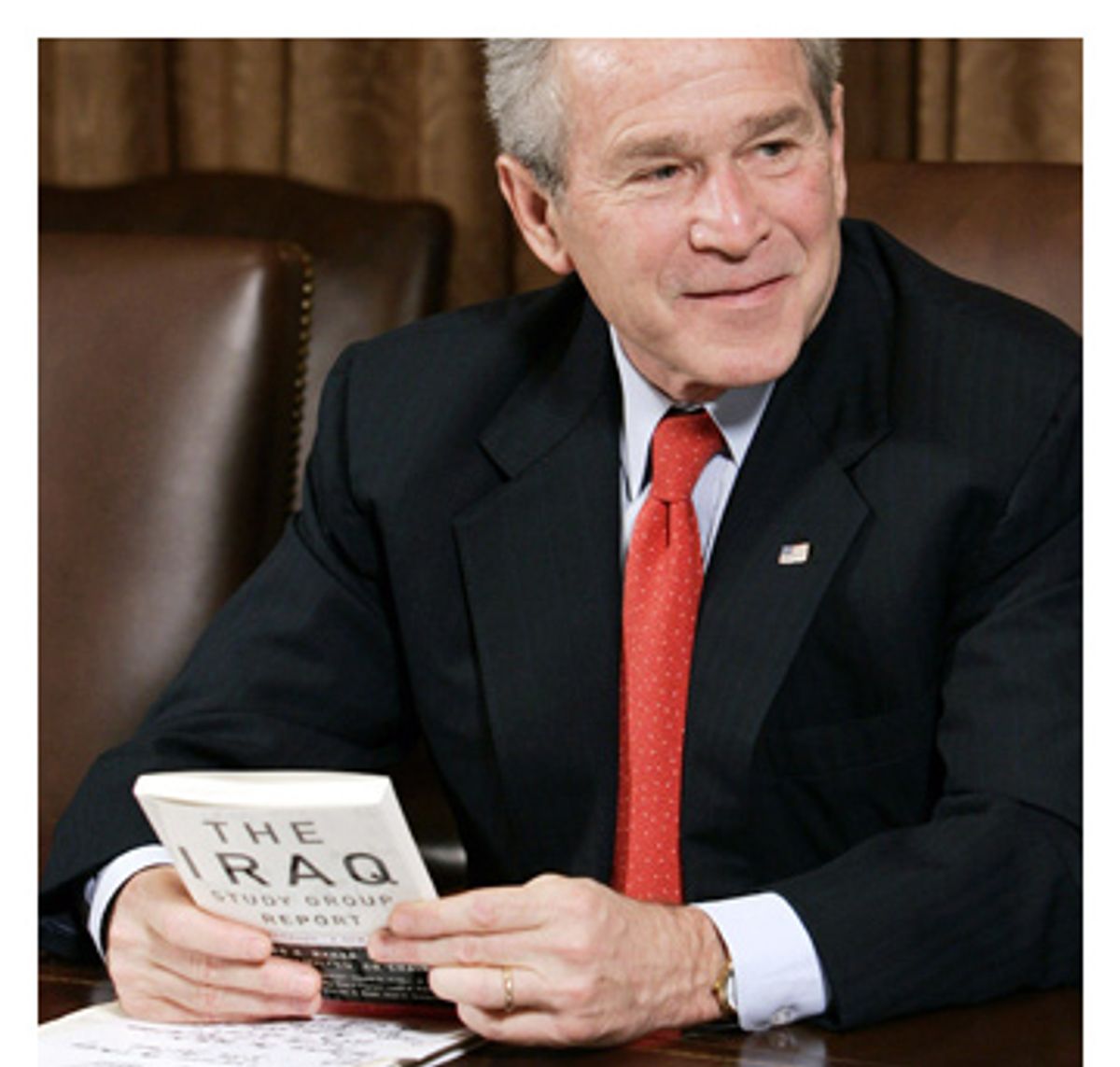The Wall Street Journal has obtained -- and posted -- Jim Baker and Lee Hamilton's introduction to the Iraq Study Group's report. The introduction says the group is proposing a two-pronged approach for moving forward in Iraq: "new and enhanced diplomatic and political efforts in Iraq and the region, and a change in the primary mission of U.S. forces in Iraq that will enable the United States to begin to move its combat forces out of Iraq responsibly."
The details:
The "external approach": "The United States should immediately launch a new diplomatic offensive to build an international consensus for stability in Iraq and the region. This diplomatic effort should include every country that has an interest in avoiding a chaotic Iraq, including all of Iraq's neighbors ...
"Given the ability of Iran and Syria to influence events within Iraq and their interest in avoiding chaos in Iraq, the United States should try to engage them constructively ... Iran's nuclear programs should continue to be dealt with by the five permanent members of the United Nations Security Council plus Germany ...
"The United States cannot achieve its goals in the Middle East unless it deals directly with the Arab-Israeli conflict and regional instability. There must be a renewed and sustained commitment by the United States to a comprehensive Arab-Israeli peace on all fronts ... This commitment must include direct talks with, by and between Israel, Lebanon, Palestinians (those who accept Israel's right to exist) and Syria.
"As the United States develops its approach toward Iraq and the Middle East, the United States should provide additional political, economic and military support for Afghanistan, including resources that might become available as forces are moved out of Iraq."
The "internal approach": "The United States must adjust its role in Iraq to encourage the Iraqi people to take control of their own destiny.
"The Iraqi government should accelerate assuming responsibility for Iraqi security by increasing the number and quality of Iraqi Army brigades. While this process is under way, and to facilitate it, the United States should significantly increase the number of U.S. military personnel, including combat troops, embedded in and supporting Iraqi Army units. As these actions proceed, U.S. combat forces could begin to move out of Iraq ...
"By the first quarter of 2008, subject to unexpected developments in the security situation on the ground, all combat brigades not necessary for force protection could be out of Iraq. At that time, U.S. combat forces in Iraq could be deployed only in units embedded with Iraqi forces, in rapid-reaction and special operations teams, and in training, equipping, advising, force protection and search and rescue. Intelligence and support efforts would continue ...
"The United States must make it clear to the Iraqi government that the United States could carry out its plans, including planned redeployments, even if the Iraqi government did not implement their planned changes ...
"If the Iraqi government demonstrates political will and makes substantial progress toward the achievement of milestones on national reconciliation, security and governance, the United States should make clear its willingness to continue training, assistance and support for Iraq's security forces and to continue political, military and economic support. If the Iraqi government does not make substantial progress toward achievement of milestones on national reconciliation, security and governance, the United States should reduce its political, military or economic support for the Iraqi government."

Shares